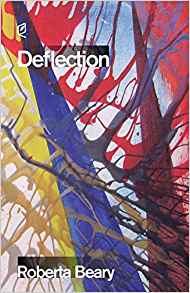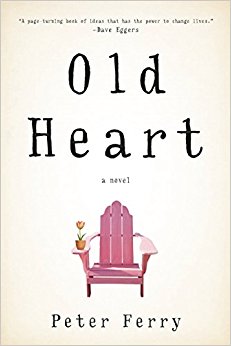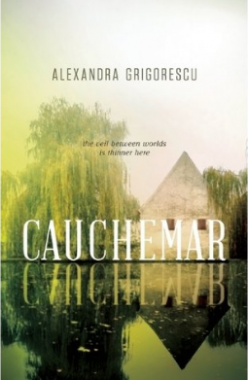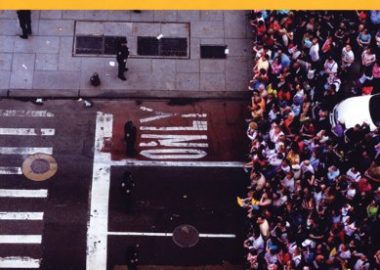We’ve been writing and reading about America since America was America. It’s one of the biggest anomalies of modern history: simultaneously the birthplace of modern democracy and modern oppression, the image of freedom and imprisonment, and the greatest example of wild beauty and materialistic clutter. Writing about America is as old as apple pie and small pox in blankets.
America. What a place.
In a way, this is what always made reading people’s work regarding America so interesting to me. It isn’t simply a matter of “Oregon, and Texas, are yet unsung” like Emerson said so many years ago. Writing about America is about somehow collecting and organizing all the beauty and ugliness the world’s biggest experiment ferociously produces.
In the book All-American Poem, it’s Portland based poet Matthew Dickman’s turn to take a long hard look at America. What’s first apparent is that Dickman doesn’t attempt to point an accusatory finger to offending American archetypes or swoon over the plains of the Midwest. Dickman’s portrait of America is slow and steady, quiet with observation. There’s no attempt at objectivity here. This is America seen through no other lens than the lenses of Dickman’s own eyes. And, frankly, that’s refreshing. While the tradition of ra-ra-this-is-f***ing-America-MAN poetry certainly has its place in the greater golem that is American poetry, this lighter approach feels like it has multiple entry and exit points for the reader.
Much of the poetry in All-American Poem seem to pay respect to the immensity of dealing with a subject such as America. Sometimes Dickman seems irreverent, collecting of stream-of-consciousness-like details where we start somewhere and end up someplace miles away, but it all feels appropriate here in that each piece is a dialogue with an American living in America. Americana dialogues with contemporary America, the American subject (Dickman) dialogues with both and himself seamlessly. The effect is a cascading portrait of America past and present, intimate and general. In “Country Music”, Dickman likens a lover to a country song “playing underneath an Egyptian cotton sheet, the easy kindness/ of her body finding its way into mine.” In just a few more lines, Dickman then evokes the image of carrying groceries home in a public radio tote bag, dating an Indonesian hippie with dreadlocks, and skater kids smoking pot out of a Pepsi can (how’s that for some meta-American commentary?). Dickman gracefully sings the nostalgic and the contemporary as one chorus.
Besides the work that is outward looking, there’s plenty of pieces that look inward as well. While these might not directly contribute to Dickman’s portrait of America, they work here. On their own, they are what you might expect from many collections of poetry: personal accounts of emotional strife, awe, and jubilation. But in the text they are fine examples of that but also serve the function of bringing attention back in on the individual (American), reminding the reader that America is massive, but made up of individual lives loving, lusting, grieving, thinking, and running through the motions at all times simultaneously.
All-American Poem handles its namesake well. It feels ambitious, yet realistic and appropriate, casting a huge net considering it’s only being thrown by a single poet.
I am tempted here to dictate the book’s titular poem, but an excerpt seems inappropriate here. It’s like taking a horse pill in the best way possible. Here’s the poem “Byron Loves Me” to get you started:
My dead English professor sits at the foot
of my bed, crying.
What’s the matter? I ask.
Matthew, he says, I will never understand Byron.
My wife is married to another man, my daughter is in love
with pop songs about sex
and money, while Byron offers nothing
but Seville and oranges. I can’t tell if he loves
me or not. My professor shrugs
like all dead men
shrug, stands up and walks out
of my room like all men, dead or alive, slowly
with his head bent to the task of leaving. Waking up
in the early morning, half dressed
for a dream about ballroom dancing – my coattails fluttering
in long black strips behind me, top hat
pulled down over my eyes
and half-dressed for breakfast – my pajama bottoms
covered with flickering hotel signs,
I remember that I live alone.
And because I live alone
I take the palm trees far too seriously, depend
far too much on my books
lined up like a third grade class preparing for recess,
all wearing different coats, some
pushing and pulling at their classmates. If you live
alone with a smile
thin as a paper cut, your dead English professor coming
around every other night in tears,
an empty mailbox and a neighbor
that puts her cigarettes out in your begonia
You should not hang yourself.
Tell the palm tree you love him. Light a candle
And offer yourself up to the books.
Haven’t they saved your life once before? Reading
Allen Ginsberg the day your friend cut himself open
in the backseat of his car,
the engine running while his mother
was getting high off a plastic bag
of paint thinner, a bluish ring around her mouth.
You could have been in that car. You could have
been like her
but you sat on the floor and pulled Lucille Clifton
off the shelf instead.
As if that were not enough
to make you shiver
while the angel of fate passed you over, somewhere
in New Jersey
you have Bruce Springsteen
writing songs about you and wondering how you are.
Matthew Dickman’s book, All-American Dream, was published in 2008 in Philadelphia, Pennsylvania by the American Poetry Review. It is the winner of the 2008 APR/Honickman First Book Prize. All poetry was quoted with written permission of the author. Image courtesy of Amazon.com. Original cover art by Max Breslow.
[author] [author_image timthumb=’on’]http://minotaursspotlight.com/wp-content/uploads/2013/08/seanthumb2.jpg[/author_image] [author_info]Sean Kearney is a native of Northeastern Pennsylvania currently residing in Philadelphia’s neighborhood of Fishtown. He received his MFA from Arcadia University with a focus in Poetry in 2013. Sean is currently floats between occupations such as dairy clerk, freelance journalist, open mic host, kinda-essayist, and one-off mascot gigs. His hobbies include playing music, playing with cats, etc.[/author_info] [/author]




